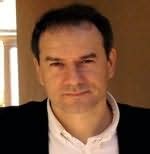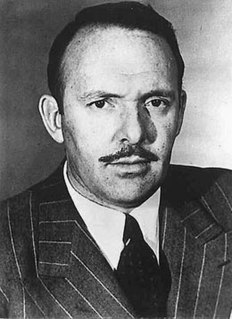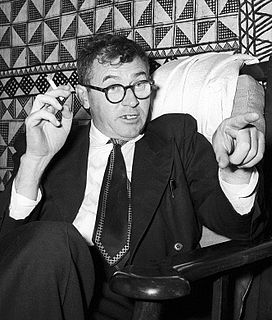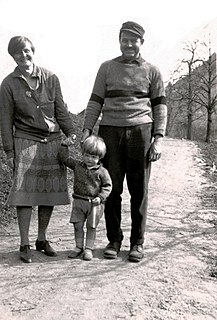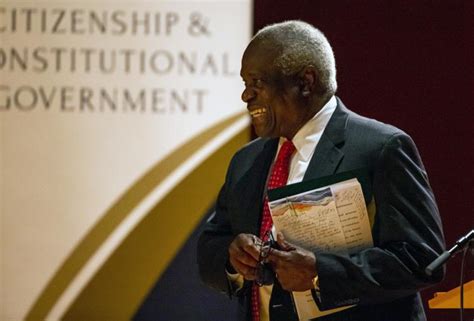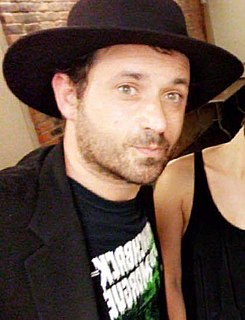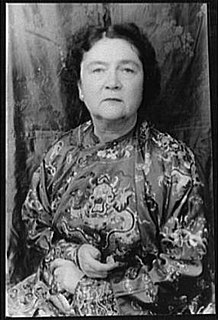Top 235 Hemingway Quotes & Sayings - Page 4
Explore popular Hemingway quotes.
Last updated on April 16, 2025.
To paraphrase Hemingway, people go broke slowly and then all at once. We've been slowly going broke for years, but now it's happening all at once as the world's capital markets are demanding action from us, yet Obama assumes we'll just go borrow another cup of sugar from some increasingly impatient neighbor. We cannot knock on anyone's door anymore. And we don't have any time to wait for Washington to start behaving responsibly. We'll be Greece before these D.C. politicians' false promises are over. We must force government to live within its means, just as every business and household does.
Men, also, have in them enormous capacities that they have to repress and fear in themselves, living up to this obsolete and brutal man-eating, bear-killing, Ernest Hemingway, crewcut Prussian sadistic, napalm all the children in Vietnam, bang-bang you're dead, image of masculinity, the image of all powerful masculine superiority that is absolute.
Instead he thinks up the worst ending imaginable: Hemingway has Catherine die from hemorrhaging after their child is stillborn. It is the most torturous ending I have ever experienced and probably will ever experience in literature, movies, or even television. I am crying so hard at the end, partly for the characters, yes, but also because Nikki actually teaches this book to children. I cannot imagine why anyone would want to expose impressionable teenagers to such a horrible ending. Why not just tell high school students that their struggle to improve themselves is all for nothing?
What's impossible not to notice, though - it's all around us - is the diminution of American prose: How pedestrian it has become. Pick up any short story and listen to its voice, the tedious easy vernacular that mistakes transcription for realism. This would display an understandable pragmatism if it were a pandering to common-denominator readers; but it is, in fact, a kind of hifalultin literary ideology, the less-is-more Hemingway legacy put through an up-to-the-minute industrial blender.
I'm interested in dismantling the distinction between masculine and feminine writing both because I think it's a false distinction and, I think, ultimately an insulting one. It's as insulting to men as it is to women. I'm not sure what masculine writing would look like - I assume some combination of Ernest Hemingway and Raymond Carver. Writing can't be gendered in that way.
Own one idea. Complete it. Map the current model of purchase and usage. Change how it is done so at least some part of the market uses only your product. Extend from that core user to a much broader universe. Describe your concept in a very short, "six-word story" - a la Ernest Hemingway: "For sale: baby shoes, never worn."
An intelligent man said that the world felt Napoleon as a weight, and that when he died it would give a great oof of relief. This is just as true of Byron, or of such Byrons of their days as Kipling and Hemingway: after a generation or two the world is tired of being their pedestal, shakes them of with an oof, and then - hoisting onto its back a new world-figure - feels the penetrating satisfaction of having made a mistake all its own.
All writers are insecure, the male ones especially. It's well known. Why else would they spend so much time on make-believe? They're only happy in their imaginary worlds, because that's where they're in charge - where they're God. Did you know that Hemingway's mother dressed him as a girl until he was six years old?" I was not offended by Claudia's glib psychological theory. Like many glib psychological theories, it struck me as fundamentally correct.
Mr Hemingway does it extremely well. Nothing matters. Everything happens. One wants to keep oneself loose. Avoid one thing only: gettng connected up. Don't get connected up. If you get held by anything, break it. Don't be held. Break it, and get away. Don't get away with the idea of getting somewhere else. Just get away, for the sake of getting away. Beat it! "Well, boy, I guess I'll beat it." Ah, the pleasure in saying that
But phony, Hemingway was not, and poseur he was not. He did not shoot lions and leopards because he was searching for the answer to life. He shot lions and leopards because he bloody well liked to hunt and shoot, and killing was the best punctuation mark at the end of the intricate and fascinating process of hunting.
Just to put that in some context, 1954 was the same year that From Here to Eternity won an Oscar. Swanson's manufactured its first TV dinner. The Army-McCarthy hearings were televised. The term "under God" was inserted into the "Pledge of Allegiance." Steve Allen's Tonight Show premiered. Ernest Hemingway won the Nobel Prize for Literature. And Bob Dylan was bar mitzvahed.
We even talked like Hemingway characters, though in travesty, as if to deny our discipleship: That is your bed, and it is a good bed, and you must make it and you must make it well. Or: Today is the day of the meatloaf. The meatloaf is swell. It is swell but when it is gone the not-having meatloaf will be tragic and the meatloaf man will not come anymore.
Fitzgerald describes the social disillusionments and ballroom romanticism of the young people of the upper classes and the loneliness of Gatsby, who gives large parties and has an extensive social life; yet he is lonely, and his guests scarcely know him.... Hemingway's characters live in a tourist world, and one of their major problems is that of consuming time itself. It is interesting to observe that his works are written from the stand point of the spectator. His characters are usually people who are looking--looking at bullfights, scenery, and at one another across cafe tables.
I think I succeeded as a writer because I did not come out of an English department. I used to write in the chemistry department. And I wrote some good stuff. If I had been in the English department, the prof would have looked at my short stories, congratulated me on my talent, and then showed me how Joyce or Hemingway handled the same elements of the short story. The prof would have placed me in competition with the greatest writers of all time, and that would have ended my writing career.
The funniest novel you've never read. . . . Afternoon Men is a revelation to sophisticated readers of every stripe, but especially to a certain kind of artist manqu on the brink of discovering that life is a more difficult business than he ever had reason to expect. . . . The subject matter is 'relatable,' as my students like to say. Better still, though, is what you can learn about the craft of writing from this marvelous book. . . . Indeed, if you're looking for a funny, nonportentous Hemingway, then the early Powell is your man.
My advice to young writers would be to write every day, even if it is only a few words. Get yourself on the habit of writing and it will become a lifelong one. And find a place to write where you are physically comfortable. You can't concentrate if you aren't. Ernest Hemingway could only write standing up, and Truman Capote could only write lying down!
When I first wrote 'Papa Hemingway,' there were too many people still alive, and the lawyers for Random House didn't want to OK it. But now all that's been filtered away by the passage of all these people. And having the fortune of surviving, I now feel that I am the custodian of what Ernest wanted the world to know about him and these women.
After college, I went on a real big classics kick. Read everything by Faulkner, Hemingway, Woolf, Proust, Dostoevsky. And that classics train dropped me off at 'Dracula.' Halfway through it, I understood I'd never be going back, never 'leaving' the genre again. Since then, I've been on a fairly strict horror diet.
Such is the content of the mental life of the Hemingway hero and the good guy in general. Every day he gets beaten into a servile pulp by his own mechanical reflexes, which are constantly busy registering and reacting to the violent stimuli which his big, noisy, kinesthetic environment has provided for his unreflective reception.
In real life, when you have an emotional experience, it's never just because of the thing that's been said. There's the backstory. It's like [Ernest] Hemingway's iceberg theory - the current emotional moment is the tip of the iceberg and all of the past is the seven-eighths of the iceberg that's underwater.
When I saw what painting had done in the last thirty years, what literature had done - people like Joyce and Virginia Woolf, Faulkner and Hemingway - in France we have Nathalie Sarraute - and paintings became so strongly contemporary while cinema was just following the path of theater. I have to do something which relates with my time, and in my time, we make things differently.
I think it's a great thing to hear the author reading. I've listened to CDs of Cheever and Updike reading their stories and Hemingway. To hear what their voices were like is amazing. Whether they're reading well or not, it's great to listen to the intonation and the beat of the guy who wrote the story.
Hemingway, damn his soul, makes everything he writes terrifically exciting (and incidentally makes all us second-raters seem positively adolescent) by the seemingly simple expedient of the iceberg principle - three-fourths of the substance under the surface. He comes closer that way to retaining the magic of the original, unexpressed idea or emotion, which is always more stirring than any words. But just try and do it!
The key for me with historical characters is they're interesting because they're human beings. A little bit of Hemingway goes a long way here, but journalists and writers should honestly look at their material and have a real interest, a real passion in what they want to write, and they should also have a lot of knowledge as well.
Dad has worked as a banker at the same firm in Boston, living in the same suburban neighborhood for over 50 years. Later in life, when I got out of graduate school and imagined myself living the life of a writer like Hemingway or Kerouac, his practical self inevitably encouraged me to get a steady a job and raise a family, just like he did.
I will not be quoting Hemingway anytime soon, nor will I ever read another one of his books. And if he were still alive, I would write him a letter right now and threaten to strangle him dead with my bare hands just for being so glum. No wonder he put a gun to his head, like it says in the introductory essay.
Well, people have been wondering what's going to happen to the novel for two hundred years; its death has been announced many times. You know, I think the novel keeps redefining the world we live in. What you should look for in a novel is a window nobody else is looking out of, that nobody else can look through. What you look for is a voice. You pick up a novel by someone such as Faulkner or Hemingway and you just read three pages and you know who wrote it. And that's what one should demand of a novelist.
As one of the first editors at 'Outside' magazine in 1975, it was my contention that most American writing going back to James Fennimore Cooper and then through Twain up to Hemingway had been outdoor writing. At that time, adventure writing meant stuff like 'Saga' or 'Argosy.' 'Death Race with the Jungle Leper Army!' That kind of thing.
Like Hemingway and Faulkner, but in an entirely different mode, Fitzgerald had that singular quality without which a writer is not really a writer at all, and that is a voice, a distinct and identifiable voice. This is really not the same thing as a style; a style can be emulated, a voice cannot, and the witty, rueful, elegaic voice gives his work its bright authenticity.
The 1992 US Olympic basketball team is the best sports team ever, the equivalent of rounding up the greatest American writers of the last century or so and watching them collaborate: 'OK, Twain, you do the dialogue and hand off to Faulkner. He'll do the interior monologue. Hemingway will edit - no, don't make that face, you know you overwrite. And be nice to Cheever. He's young, but he's got a good ear. Wharton and Cather can't play - they're girls.'
I kind of dislike 'For Whom the Bell Tolls,' but most of Hemingway in general, mainly because his stylistic shenanigans ruined so many young writers of my generation who tried to imitate him. I think, for his time, he moved fiction to a different level stylistically, or at least added to the dialogue, but in our time, he's annoying.
I read everything I could find in English - Twain, Henry James, Hemingway, really everything. And then after a while I started writing shorter pieces in English, and one of them got published in a literary magazine and that's how it got started. After that, graduate school didn't seem very important.
There's this whole post-modern, nuevo beatnik, retro-bohemian thing going on, you know what I mean? You walk into some coffee shops, and it feels like you're an ex-patriot in Paris in the 20s. You're like, 'Hey, isn't that a young Ernest Hemingway over there? Yeah, I think it is! Hey, let's go have a look and see what he's writing... It's a Gap application.'
It has been suggested that Tiptree is female, a theory that I find absurd, for there is to me something ineluctably masculine about Tiptree’s writing. I don’t think the novels of Jane Austen could have been written by a man nor the stories of Ernest Hemingway by a woman, and in the same way I believe the author of the James Tiptree stories is male.
Back in the days when American billboard advertising was in flower [said Hemingway], there were two slogans that I always rated above all others: the old Cremo Cigar ad that proclaimed, Spit Is a Horrid Word-but Worse on the end of Your Cigar, and Drink Schlitz in Brown Bottles and Avoid that Skunk Taste. You don't get creative writing like that any more.
The books transported her into new worlds and introduced her to amazing people who lived exciting lives. She went on olden-day sailing ships with Joseph Conrad. She went to Africa with Ernest Hemingway and to India with Rudyard Kipling. She travelled all over the world while sitting in her little room in an English village.










